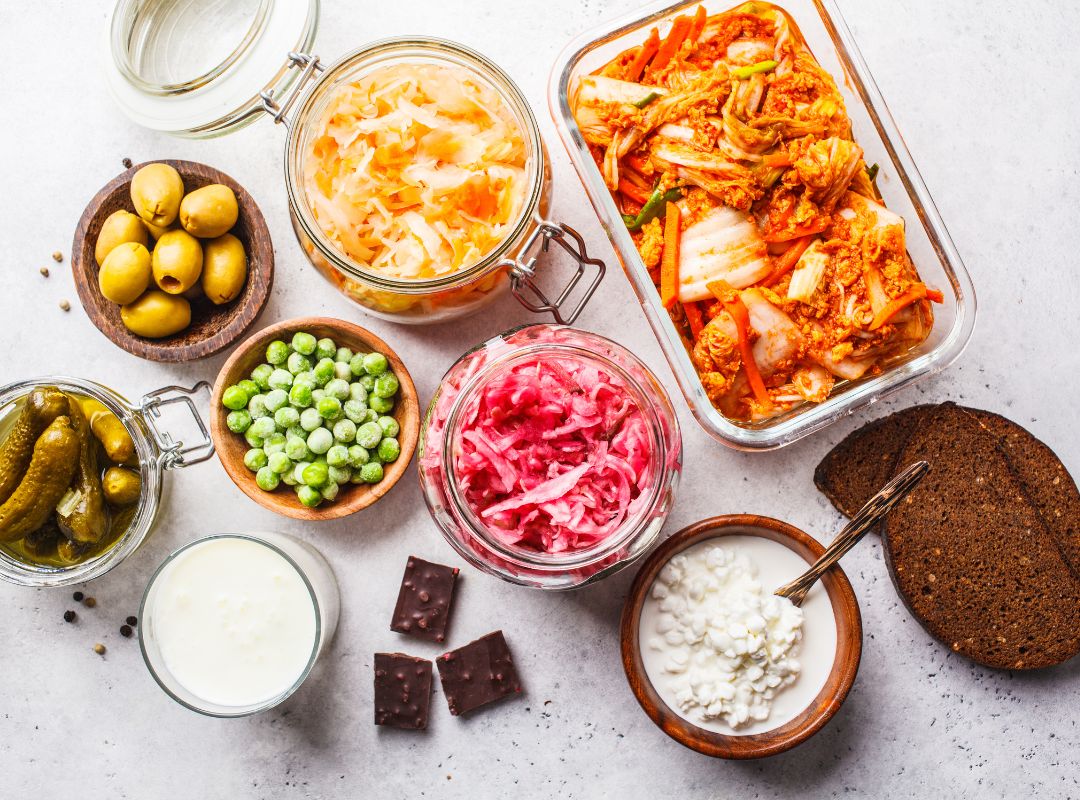You've probably heard of probiotics and prebiotics in passing, but what actually are they?
We'll tell you. While they may sound similar, they play very different, though complementary, roles in our health. Let's dive into what these substances are and how they can keep your digestive system running smoothly.
Understanding Probiotics: Your Gut's Friendly Forces
Probiotics are the live beneficial bacteria that live in your gut. These microscopic allies are essential for maintaining a balanced gut microbiome (the community of microorganisms that inhabit your digestive tract). Consuming probiotics can help replenish and sustain levels of good bacteria in your gut. These bacteria can be thrown into disorder by factors like diet, stress, and antibiotics.
What to Eat to Get Probiotics? These helpful bacteria are found in fermented foods such as:
- Yogurt and kefir with live cultures
- Fermented vegetables like sauerkraut and kimchi
- Beverages like kombucha
- Probiotic supplements
Probiotics' Health Benefits: The benefits of incorporating probiotics into your diet are plenty:
- They can improve digestive health, aiding in nutrient absorption and bowel regularity
- They support the immune system, as a significant part of the immune response is located in the gut.
- They may lessen the symptoms of gastrointestinal disorders like IBS and certain forms of diarrhea.
- Some studies suggest they could also play a role in managing allergies and eczema.
Understanding Prebiotics: Nourishing the Gut Garden For Probiotics
Prebiotics are the food for probiotics. Found in certain high-fiber foods that we cannot digest, they pass through the digestive system and become a feast for the good bacteria in our gut. This food can help our gut be strong.
Sources of Prebiotics Include:
- Fruits like bananas and apples
- Vegetables such as garlic, onions, and asparagus
- Whole grains like barley and oats
The Prebiotic Payoff The inclusion of prebiotics in your diet can have these potential benefits:
- Stimulating the growth of beneficial gut bacteria
- Enhancing calcium and magnesium absorption, contributing to bone health
- Promoting bowel regularity and a healthy digestive tract
- They may even help with reducing inflammation and could play a role in obesity management.
Synergy for Superior Health The relationship between prebiotics and probiotics is often described as synergistic. Prebiotics help feed and increase probiotics, which in turn, improve gut health and function. When they work together, they create a better gut environment than just one alone can produce.
Final Thoughts: Balancing Your Gut Biome Incorporating a combination of prebiotic and probiotic-rich foods into your diet can be a simple yet effective way to better your digestive health.
Whether it's through a yogurt parfait sprinkled with high-fiber granola or a bowl of miso soup with garlic stir-fried vegetables, nurturing your gut flora can be tasty and you will feel better for it.
Remember, before making any significant changes to your diet or starting new supplements, it's always best to consult with a healthcare professional, especially if you have underlying health conditions. Here's to your health, one probiotic and prebiotic at a time!
Let us know if you found this information helpful in the comments.


